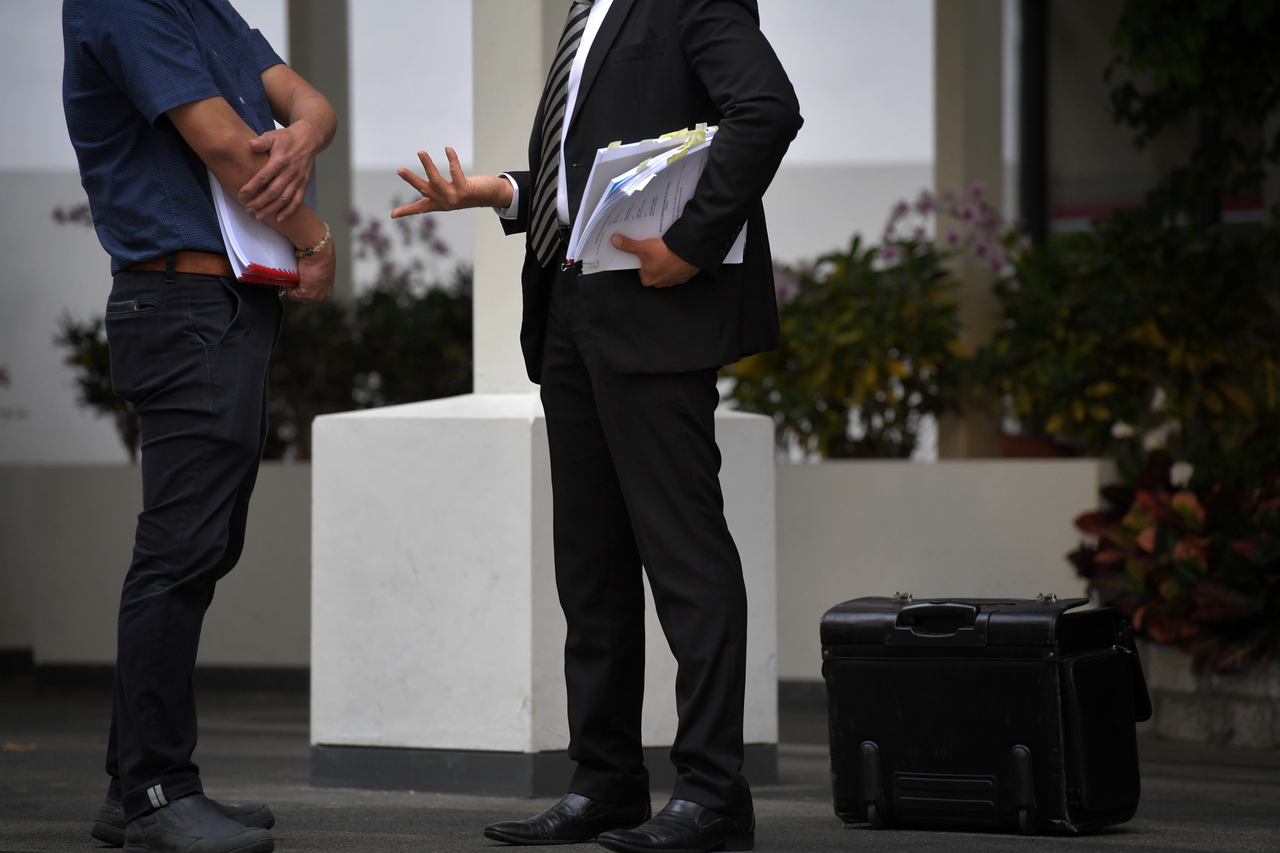Growing intersection between law and tech will require students trained in both
Sign up now: Get tips on how to help your child succeed

Students will be able to find work in various places like tech or legal firms, in roles that may not exist yet.
ST PHOTO: KUA CHEE SIONG
SINGAPORE - As the technology scene globally and in Singapore continues to race towards more innovation and disruptive solutions, firms may inadvertently tread into murky waters in areas such as privacy, fake news and intellectual property.
Traditional lawyers and programmers may not be able to navigate this intersection due to limits in their training, said Assistant Professor of Computing and Law at the Singapore Management University (SMU) Lim How Khang.
A recent example was Singapore's adoption of TraceTogether, and the public and parliamentary discussion sparked about the authorities' use of its user tracking data, he said.
To equip more graduates to work at the growing intersection between law and technology, Prof Lim helped to set up SMU's four-year Computing and Law undergraduate course.
The first cohort - with 21 students - just finished its first year of study.
Students take modules from both the university's law and computing faculties, taking an even split of modules across the two fields.
The course starts off focusing on areas where there is significant overlap, such as intellectual property.
Prof Lim said that when they graduate, students will be able to find work in various places like tech or legal firms, in roles that may not exist yet.
One of these students, Mr Jonathan Lim, 22, said that while the two fields appear quite distinct at first, there are similarities that lie below the surface.
"Both seek to solve problems, whether they are technical ones or analytical ones," he said.
Mr Lim, who choose the programme because he was attracted to the idea of an interdisciplinary education, said his friends and family have voiced concerns that his degree may not be in-depth enough in either subject. But he has not been short-changed on either front so far, he said.
"While I will not be able to qualify as a lawyer, I feel in terms of technical training, I am just as able as people who specialise (in law or technology)," he said.
Prof Lim, who is himself trained in both disciplines, said that while he does teach technology to law school students and vice versa, he is not able to get to an in-depth level of discussion with them, as they do not have the necessary basic training.
The programme seeks to attract at least 45 new students a year in future, and hopes to help students fill jobs in what Prof Lim says is a growing field.
The legal profession in Singapore has also been seeking to upgrade its technological skills education.
In 2019, Chief Justice Sundaresh Menon said in an address at the 29th Inter-Pacific Bar Association Annual Meeting and Conference that technological training should not be seen as an "optional extra", and that "training lawyers who are proficient in the use of technology must be a priority".
In February this year, the National University of Singapore's law faculty announced that it was looking to smoothen the transition for transfer students from other degree courses in the university, with the hope of injecting students with technological or business knowledge into the law cohort.
Lawyer Gilbert Leong, a senior partner at Dentons Rodyk & Davidson, said: "In the practice of law today, we cannot escape technology."
Mr Leong, who has been working with tech companies since the early 1990s, said that individuals with training in both fields - such as future graduates of the new SMU course - would be able to help companies understand and get ahead of legal pitfalls.
"They can also help companies understand and adhere to industry standards, something people who are just trained to code might not be able to do," he added.


